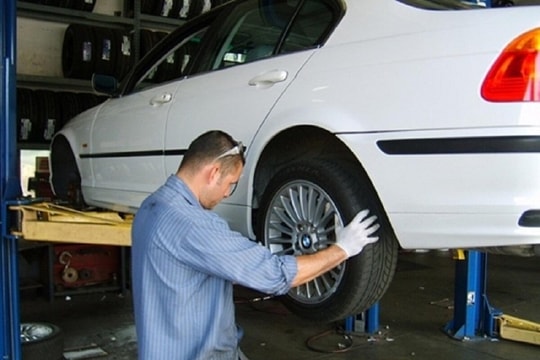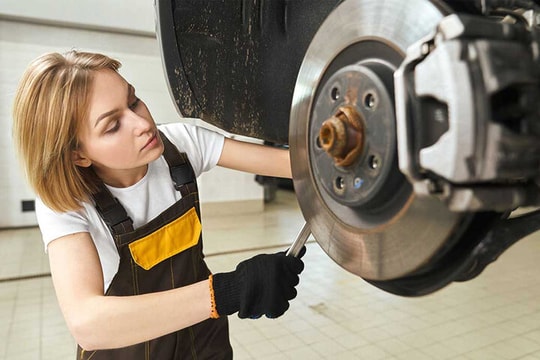Experience in early detection of damage on cars
(Baonghean.vn) -Early detection of technical errors will help you reduce repair costs and avoid danger when driving.
Users need to have a basic understanding of the car's system so that when they detect unusual signs, they can handle them appropriately, as well as know when to take the car to the garage for timely inspection, maintenance or replacement.
Dashboard warning light
After turning on the ignition, all the warning lights on the dashboard will light up for a few seconds and then go out. However, if one or more lights remain on immediately after starting, it is a sign that there is a problem with a part or system that needs to be fixed.
There are red lights that immediately indicate an error, such as the red oil pressure light (oil cup shape) that comes on even when the vehicle is running. At this time, you need to quickly stop the vehicle and turn off the engine because the vehicle is lacking oil, causing loss of oil pressure to lubricate the engine and run out of viscosity. Check the oil box to fix it.
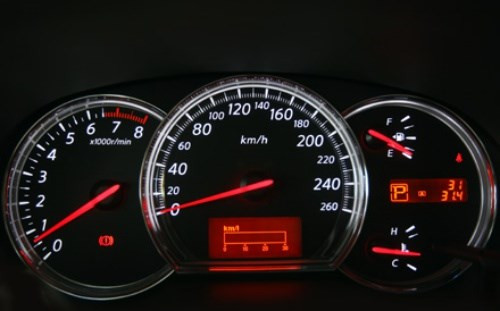 |
Engine temperature warning clock
It can be affirmed that this is an important index on a car, so the manufacturer has specifically expressed it by a colored line through a separate clock cluster on the dashboard, indicating whether the engine is operating within the allowed temperature conditions or not.
If the measured value exceeds the normal level, it means that the motor is working overloaded.
When the vehicle is under heavy load such as climbing a hill, carrying a heavy load or there is damage to the engine cooling system (cooling fan broken, lack of coolant, thermostat not working...) then the urgent solution is to turn off all auxiliary equipment such as air conditioner, sound system... and shift to low gear to increase torque.
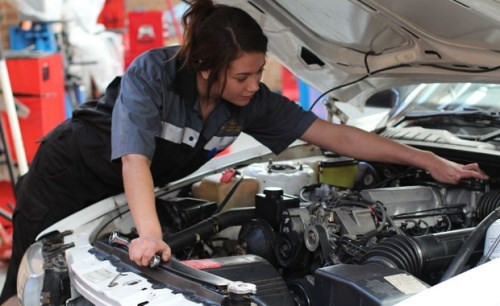 |
Check under the car
When detecting liquid under the floor, parking lot, if it is normal water with no color or smell, then there is nothing to worry about. This proves that the cooling capacity of the air conditioner is good, the cold temperature is deep so the water vapor turns into liquid form quickly.
In other cases, if the water is colored (blue, orange), it is most likely engine coolant. If it is engine oil, there are many causes. You need to check carefully, it is very possible that the oil drain screw is not tightened properly, the force of the gearbox seals, clutch, cardan, steering rack, etc. is problematic.
It is best to bring it to a garage or authorized repair station to find the cause and fix it before sudden damage occurs during operation.
Check the tires
Before traveling, especially on long journeys, on highways and mountainous roads, checking the tires is extremely important. Recently, there have been many cases of tire explosions on the highway, leading to serious accidents.
Check tire pressure regularly to ensure it is not too soft or too hard. Check for cracks in the tire, check for wear, and if uneven wear is found, rotate the tires according to the rules recommended by the manufacturer in the vehicle owner's manual.
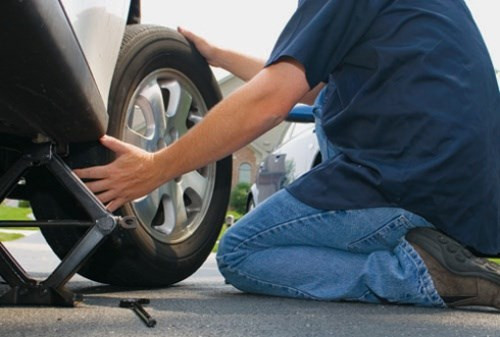 |
Check the brake system
When moving, if the steering feels heavier than normal and is difficult to return to its original position, check the power steering fluid level; in other cases, the steering feels off when steering, go to the garage to adjust the steering rack.
For the brake system, if the braking distance is longer than normal when braking, the brake does not “work” or the car crashes on one side, the brake system should be checked. There are many causes such as lack of brake fluid, brake cylinder problems.
To keep your car in the best working condition, you should check it regularly with your eyes and your driving feeling. In addition, you should check and maintain your car periodically to detect damage as soon as possible.
Sound coming from the steering shaft
One of the most common sounds is the “squeaking” sound from the steering wheel. This sound appears during acceleration after a period of inactivity. It can be a potential cause of some parts such as: worn joints, low oil or worn steering shaft bearings...
Unusual noises can be caused by some fault in the car, so correctly diagnosing the cause of the noise will help the car owner avoid many inconveniences and life-threatening dangers.
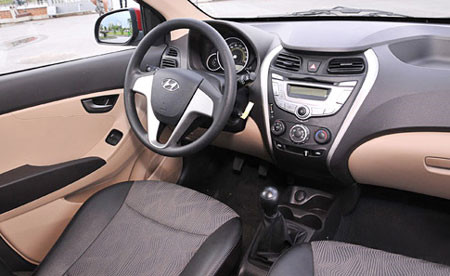 |
Sound from front wheel
The tire is the only part of the car that comes into contact with the road and has a major impact on the handling of the car, and the wheel has more moving parts than the steering shaft. The front wheels in particular will make more noise than the rear wheels.
One of the common sounds that comes out is a screeching or growling sound when braking. Therefore, the driver must pay close attention to the grinding sound from the front wheel when braking. The cause of the noise is due to worn brake pads, so check or replace the brake pads as soon as possible.
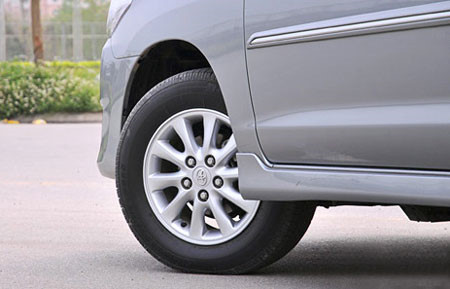 |
Engine noise
Engines make noise all the time, and drivers often don’t pay much attention to it. One of the most common noises is a screeching noise when accelerating, which can be caused by a slipping power steering or fan belt.
A “clicking” sound is a sign that the engine is running at too low an oil level, a valve is loose, or some other component is faulty.
Noise coming from the bottom of the exhaust pipe can be caused by an overheating engine, carbon buildup in the combustion chamber, or low fuel.
In addition, through the "clicking" sound of the relay, we can identify if the camshaft drive belt is not installed correctly, the wrong fuel is added, or the engine is overheating.
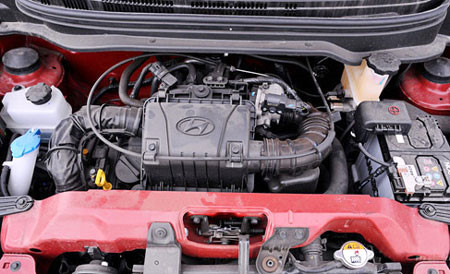 |
Noise from the jack
This is the intermediate power transmission part between the valve and the cam. A worn or rusted lifter causes it to work out of sync with the cam and valve, creating noise. This also causes increased thermal clearance.
Strange sounds appear due to one of the causes
- Brakes are covered with dust for a long time
- Brake shoe is distorted
- Brake disc is bent
- The brake pad spring is stretched or stuck.
- Dry brake oil or worn brake linings
- Wheel bearings are loose or worn.
All of these sounds remind drivers to stop their vehicles for inspection because they affect the safety of the vehicle owner as well as the safety of the vehicle.
Ngoc Anh
(Synthetic)
| RELATED NEWS |
|---|

